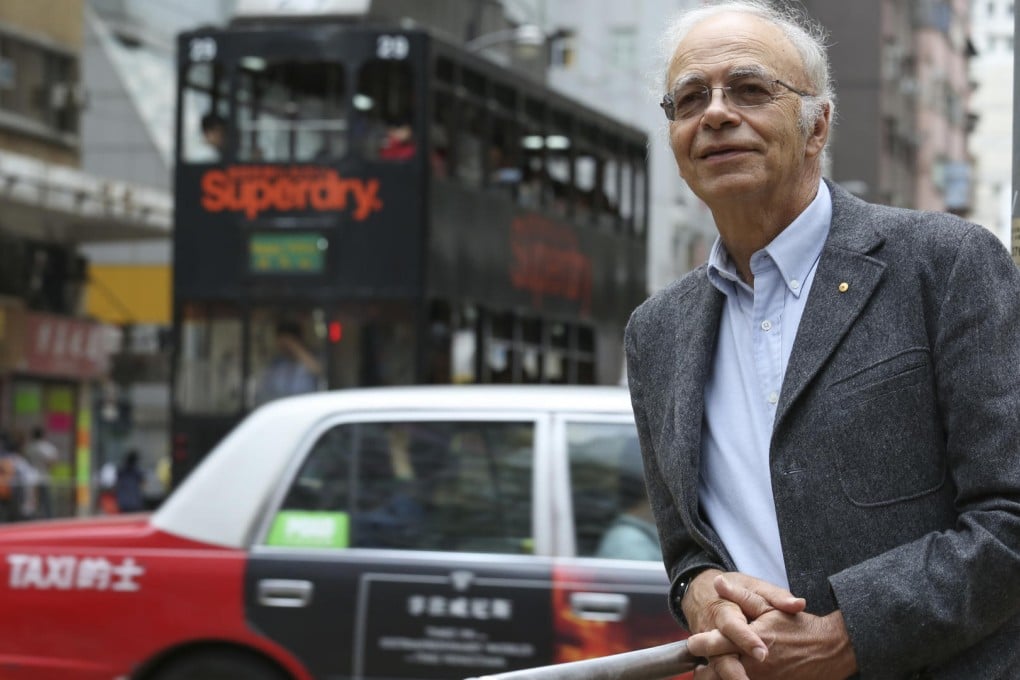Philosopher Peter Singer on why all men are not created equal
Dubbed the most influential philosopher alive, Peter Singer is loved and loathed for his controversial views. Now he wants us to give away a lot of our money. Jo Baker reports

For a man who sparks volcanic public debate wherever he goes, Peter Singer comes across as remarkably mild mannered.
"I do cause some controversy, but there are also misunderstandings," acknowledges the renowned moral philosopher, softly, as we plumb a few of the inaccuracies that have tainted the public reaction to his work. Although dubbed by The New Yorker magazine as "the most influential philosopher alive", Singer, known also as a bioethicist and activist, has been maligned during his career for tolerance or support, from a moral standpoint, of euthanasia, abortion, the rights of animals over some humans, infanticide and forms of bestiality - not to mention his calling "the whole edifice of Judaeo-Christian morality" terminally ill. And these charges have now swollen to include the belittling of wealthy philanthropists. This is a serious charge-sheet indeed.
An academic, with appointments at the University of Melbourne, in Australia, and Princeton University, in the United States, the Australian visited the University of Hong Kong recently to publicise his new book on the ethics of giving charitably, parts of which have also managed to cause indignant emissions from the public. The Most Good You Can Do is a challenge to the affluent (and not so affluent) people around the world who might consider themselves to be "good". In it he argues that many of us, if we were truly good, could afford to give about a third of our income to charity.
Yet as a proponent of the "effective altruism" movement, certain good deeds and charities rank much higher in Singer's book than others - which is where the belittling comes in. In an interview earlier this year, the philosopher criticised the donation of US$100 million by an American tycoon for the renovation of a concert hall at New York's Lincoln Centre for the Performing Arts, which would later be named after the philanthropist. Singer pointed out that just US$100 can restore the sight of a blind person. The basic needs of people around the world must take priority, he said. "Then help people listen to concerts in beautiful concert halls." In certain circles, hackles were raised.
But Singer has supported his moral argument with another one. Effective giving is not only the hallmark of an ethical person, he says, but a happy one, too.
"I think a lot of people do want to find more fulfilment, do something that is more worthwhile than just displaying their wealth," he says, having noted that, according to studies, a sense of wellbeing is not increased by wealth accumulated beyond about US$75,000. In a city that is home to 732,000 millionaires, and in which around one in five children lives below the poverty line, this in itself is a racy statement.
